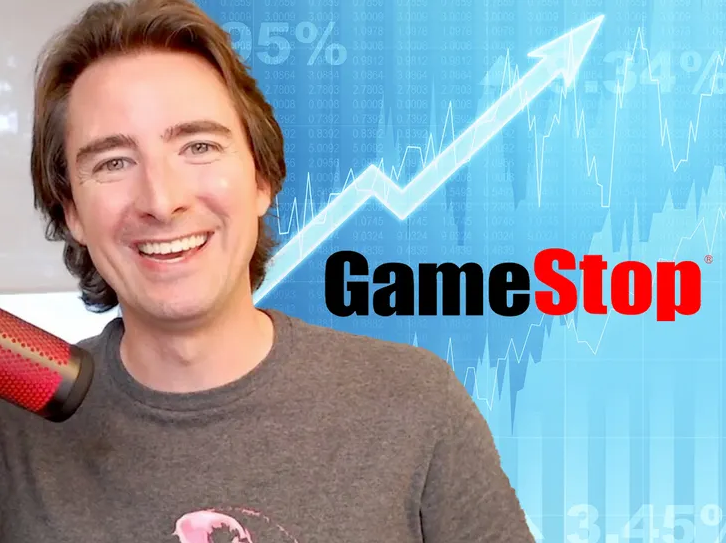‘Roaring Kitty’ Returns & Wall Street Is Mad
The famous retail trader known as Keith Gill, or “Roaring Kitty”, has recently resurfaced on social media after a three-year hiatus, causing a surge in prices for “meme stocks” like GameStop. On Sunday night, Gill posted a picture on X depicting a seated video game player leaning forward, breaking his account’s streak of dormancy. This was followed by a flood of video clips on Monday, coinciding with a sharp increase in the stock prices of GameStop and other meme stocks.
Little is known about Gill, but he was linked to the Reddit day trader-driven short squeeze of GameStop earlier this year. Media outlets identified him as the owner of the “Roaring Kitty” accounts on X and YouTube, as well as the username “DeepF*ckingValue” on Reddit.
According to his testimony to Congress in February 2021, Gill was raised in Massachusetts and was the first in his family to obtain a bachelor’s degree. He also mentioned that he learned about investing through previous jobs and analyzing stocks outside of work.
Gill gained notoriety during the “meme stock” craze earlier this year when he and other retail traders went against major hedge funds and short-sellers, causing stocks like GameStop to skyrocket. The price of GameStop stock reached a high of $483 in late January 2021, causing major losses for some short-sellers. The frenzy also affected other companies, leading them to be labeled as “meme stocks”.
His involvement in the meme stock craze was recently depicted in the movie “Dumb Money”, which is based on the book “The Antisocial Network”. Gill’s character is played by Paul Dano in the film. During his testimony to Congress, Gill denied using social media to manipulate the stock price of GameStop and maintained that his investments and posts were based solely on publicly available information.
Gill’s recent return to social media and his posts about GameStop have once again caused a spike in the stock price. On Monday, GameStop’s stock jumped by 74% and trading was halted multiple times due to the volatility. Other meme stocks, like AMC and Koss Corp., also saw significant increases. The resurgence of meme stocks has been attributed to Gill’s social media presence and renewed interest from retail traders.
However, it’s important to note that the dynamics of the market have changed since the initial meme stock craze. When Gill and other retail traders began buying shares of GameStop, more than 140% of the company’s tradable shares were being shorted.
This distorted figure was due to some traders borrowing against already shorted stocks, increasing their losses when the stock price began to rise. Currently, the short positions against GameStop’s tradable shares stand at just over 24%.
Gill’s involvement in the meme stock frenzy has also garnered attention from lawmakers and regulators. During his testimony to Congress, he maintained that his social media posts were intended for educational purposes and that his aggressive investing style may not be suitable for all investors. Some have raised concerns about the potential for retail investors to be misled by social media influencers in the stock market.
In the end, it remains to be seen how long the resurgence of meme stocks will last and what impact it may have on the overall market. The recent jump in stock prices for companies like GameStop could be short-lived, as the underlying financial health of these companies has not drastically changed. The actions of retail traders, influenced by social media personalities like Roaring Kitty, have caused a stir in the stock market once again and shed light on the power of online communities to move the market.


